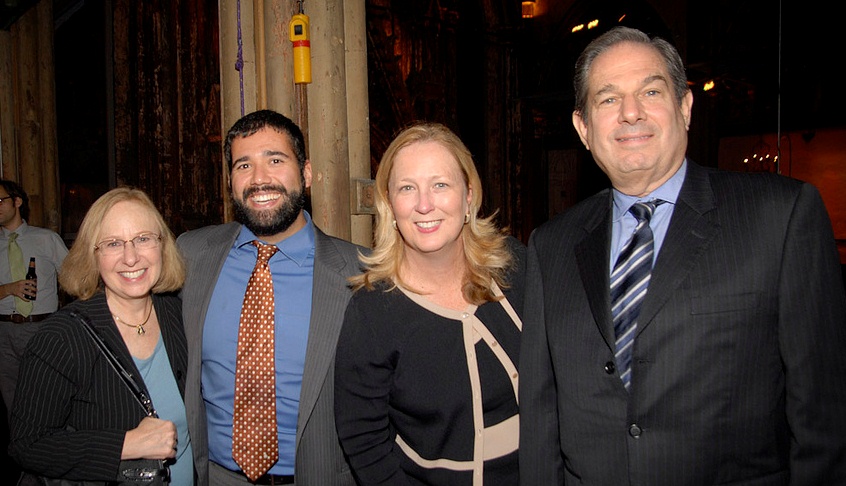Today’s post comes from guest author Leonard Jernigan, from The Jernigan Law Firm.
Employee Fraud Cases (1): $1,500,000.00
Total: $45,564,492.00
Every year we hear about fraud in Workers’ Compensation cases and the public believes the fraud is employee driven. However, in 2009 I began tracking the Top Ten Fraud Cases and 100% of the Top Ten between 2009-2012 involved employers or shady characters posing as legitimate businesses. The amount of employer fraud is staggering. In 2013 one employee fraud case did crack the Top Ten, so the record is now 49-1 (employer fraud v. employee fraud) over the past five years.
-
Florida: Owners of Diaz Supermarkets in Miami-Dade are Accused of $35 Million Fraud (4/16/13)
John Diaz and his wife Mercedes Avila-Diaz owned and operated four supermarkets in the Miami-Dade area. They have been arrested and accused of workers’ compensation fraud and other fraudulent transactions totaling $35 million. One business they operated had no coverage for employees for ten years. They allegedly engaged in a scam to help subcontractors obtain false certificates of insurance that allowed the subs to work for general contractors who required the certificates.
-
California: Hanford Farm Labor Contractor Convicted of Fraud in the Amount of $4,195,900 (12/6/2013)
Richard Escamilla, Jr. (47), owner of ROC Harvesting, misrepresented information to workers’ compensation insurance carriers by using new business names to obtain insurance and avoid providing a claim history. Escamilla pleaded guilty on October 29th and was sentenced to pay restitution of $4.1 million and serve six years in prison.
-
Michigan: Insurance Executive Embezzled $2.6 Million from Workers’ Comp TPA (06/06/2013)
Jerry Stage (67), the former CEO of a non-profit workers’ compensation insurance company, and George Bauer (55), the bookkeeper, both pleaded guilty to embezzling from the Compensation Advisory Organization of Michigan (CAOM) for more than a decade. Mr. Stage embezzled $2.6 million from the company and conspired with Mr. Bauer to cover up the embezzlement.
-
California: Employee Wasn’t Wheelchair Bound After All – Fraudulently Took $1.5 Million in Benefits (8/9/13)
Yolandi Kohrumel, 35, claimed for nine years that she was wheelchair bound after complications from toe surgery, but after she had collected $1.5 million in benefits it was revealed her claim was false. Her father, a South African native, was also engaged in the scam. Both pleaded guilty to insurance fraud, grand theft and perjury. Ms Kohrumel was sentenced to one year in jail, plus restitution.
-
California: Father and Son Landscapers Accused of $1.45 Million in Insurance Fraud (5/7/13)
Jesse Garcia Contreras (57) and Carlos Contreras (33), who operate a Thousand Palms landscaping business, are accused of committing $1.45 million in insurance fraud. They are accused of defrauding the California State Compensation Insurance Fund by misclassifying employees from January 2008 to March 2012. Mr. Jesse Contreras is the president and CEO of Sunshine Landscaping and his son is Director of Accounting. If convicted, they each face up to 19 years and 8 months in prison.
-
Florida: Workers’ Compensation Check Cashing Operation Charged with $1 Million in Fraud (2/27/13)
As a result of its investigation of I&T Financial Services, LLC, a company that was allegedly set up to execute a large scale check cashing scheme for the purpose of evading the cost of workers’ compensation coverage. Domenick Pucillo, the ringleader of the fraud scheme, was arrested and charged with filing a false and fraudulent document, forgery, uttering a forged instrument, and operating an unlicensed money service business. If convicted on all charges, he faces up to 45 years in prison. $1 million was seized during this investigation.
-
West Virginia: Coal Company Contractor in Mingo County Caught in $405,000 Scam to Avoid Workers’ Comp Premiums (11/6/13)
Jerame Russell (50), an executive with Aracoma Contracting, LLC, a company that provided labor to coal companies on a contract basis, entered a guilty plea to a scam that involved funneling over $2 million through a local bank to pay employees in cash, thus avoiding payroll taxes and $405,000 in workers’ compensation premiums. Aracoma also bribed an insurance auditor to cover up its true payroll.
-
Ohio: Roofing Business Owners Guilty of $283,592 in Workers’ Comp Fraud (7/30/2013)
The owners of Triple Star Roofing were found guilty of fraud on July 15 for failing to report payroll to the Ohio Bureau or Workers’ Compensation(BWC). The company failed to report to the BWC from 2004 to 2008, resulting in under-reported premiums of $283,592.
-
Florida: Owner of Staffing Company arrested for $130,000 in Workers’ Comp Fraud
The owner of Preferred Staffing of America, Inc., a temporary staffing agency in Tampa, has been arrested for allegedly running an organized workers’ compensation fraud scheme. Preferred Staffing’s owner misled clients into believing that his company was a licensed professional employer organization (PEO) and could provide workers’ compensation insurance coverage. Employers were reportedly charged more than $130,000 for workers’ compensation insurance and other services that were never provided.
For more information, contact: Leonard T. Jernigan, Jr. Adjunct Professor of Workers’ Compensation N.C. Central School of Law The Jernigan Law Firm 2626 Glenwood Avenue, Suite 330 Raleigh, North Carolina 27608 (919) 833-0299 ltj@jernlaw.com www.jernlaw.com @jernlaw
Prior results do not guarantee outcomes.
Attorney Advertising.







